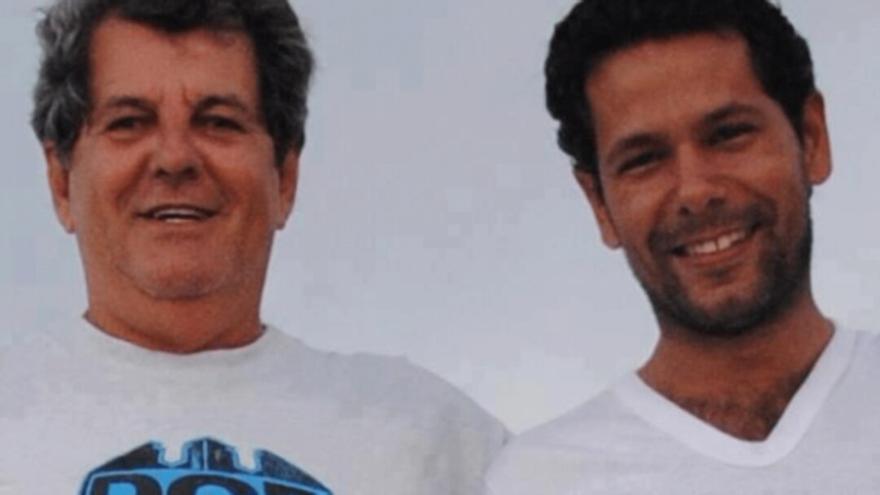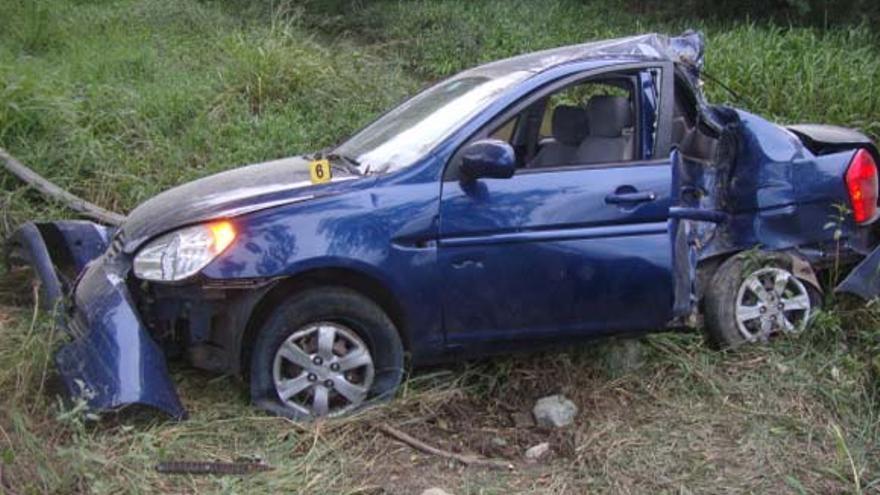
![]() 14ymedio, Madrid/Havana, 12 June 2023 — More than ten years after the death of the Cuban opponent Oswaldo Payá, the Inter-American Commission on Human Rights (IACHR) published on Monday the results of its investigation into the case: “There are serious and sufficient indications to come to the conclusion that state agents had an involvement in the death of Mr. Payá and (Harold) Cepero.”
14ymedio, Madrid/Havana, 12 June 2023 — More than ten years after the death of the Cuban opponent Oswaldo Payá, the Inter-American Commission on Human Rights (IACHR) published on Monday the results of its investigation into the case: “There are serious and sufficient indications to come to the conclusion that state agents had an involvement in the death of Mr. Payá and (Harold) Cepero.”
For the Cuban regime, the text argues, the elimination of both dissidents from the political scene had a strategic value: to cause a hard blow to the structure of the organization led by Payá, the Christian Liberation Movement, and to weaken the opposition.
A detailed report, which includes the data provided by the relatives and a direct witness of the “vehicle crash,” caused by a State Security car, in which the opponent lost his life on July 22, 2012, allows the Commission – an organ of the Organization of American States (OAS) – to contravene the official version disclosed by the Cuban authorities.
The IACHR concluded its investigation on December 19, 2022, but the document was retained until now for unknown reasons, although some pressure was expected to prevent publication or qualify the explosive conclusions of the report. Although it is not an active member of the IACHR, Cuba is a signatory of the OAS charter and, therefore, should comply with the recommendations of its human rights organization.
Last March, a bipartisan group of US senators including Democrats Dick Durbin and Bob Menéndez and Republican Marco Rubio, demanded that the IACHR “accelerate the progress of the investigation into the murder” of Payá and Cepero, arguing that they could do their “critical work” even if the Cuban government did not cooperate.
Faced with the constant refusals of the authorities of the Island to offer a complete and detailed explanation, the IACHR grants “evidential value” to the allegations of Payá’s family and other “multiple elements of evidence”: a State Security vehicle attacked the car in which Payá, Cepero and two foreign citizens were traveling, on a road in the province of Granma.
The authorities’ report blamed the driver, the young Spanish politician Ángel Carromero, of the Popular Party (conservative), for provoking the crash, and as such he was tried for involuntary manslaughter in an Island court. Carromero, forced to corroborate the regime’s hypothesis in front of the cameras of Televisión Cubana, explained, back in Spain, that he had given his declaration under duress.
There is also, says IACHR, an external eyewitness – whose identity is protected – who claimed that a State Security car hit the vehicle in which Payá was traveling, a technique with which the political police had previously tried to intimidate the opponent. In 2008, his family reported that the regime agents had loosened the nuts on the tires of his car and that, just a month and a half before his death, his car was hit by a state vehicle. In both cases, the Cuban authorities ignored the claims.

The report says that the events of July 2012 constitute, in the first place, a flagrant violation of the right to life, freedom, security and integrity of the person, but that they were not the only rights disrespected by the Cuban Government during the life of Payá and Cepero.
Systematically and to intimidate both opponents, the political police prevented them from free movement through the national territory, placed microphones in their homes in order to listen to their conversations and subjected them to discredit in front of public opinion. In addition, every time international organizations – including the IACHR – requested detailed information about the case, the Cuban State ignored the request, which, as it points out, had judicial consequences.
After Payá’s death, at the age of 60, his wife Ofelia Acevedo and his daughter Rosa María Payá were not given access to the autopsy report, a right that they have demanded on several occasions, and they were prevented from attending the trial of Ángel Carromero, which also constitutes a violation of the laws of judicial process.
Carromero was detained for three months until he was heard by a judge, which, the Commission points out, is a violation of Cuban law. The Spanish politician said that, during his arrest, he suffered beatings from the agents and that in prison he was subjected to unacceptable conditions, lack of food and lack of medical care.
The report also notes that Payá’s family can be considered “victims” of the State’s actions, since not only were their psychological and moral integrity affected, but, after the events, they were also harassed by the political police.
Ofelia Acevedo and her daughter reported that, several days after Payá’s death, they went by bus to visit Cepero’s family, in Ciego de Ávila, and that in the reserved seats there was a paper with their names. When the doors were closed, “without letting travelers board,” the vehicle began to circle around the terminal “at high speed, for no apparent reason.” Both in Havana and in Ciego de Ávila, they said, there were agents of State Security following them.
After its analysis, the Commission addresses the Cuban Government and demands reparation for the death of Oswaldo Payá and Harold Cepero, which includes financial compensation for his family, transparency in their explanations and the generation of “conditions of return” to the Island of “all people who as a result of the events have been forced to rebuild their life projects in other places, whenever they wish.”
Likewise, taking into account the seriousness of the allegations in the report, it requires a new and more rigorous investigation by the Cuban authorities, which adheres to the truth in its results, and the adoption of a series of “mechanisms” to stop the criminalization of dissent on the Island.
Translated by Regina Anavy
____________
COLLABORATE WITH OUR WORK: The 14ymedio team is committed to practicing serious journalism that reflects Cuba’s reality in all its depth. Thank you for joining us on this long journey. We invite you to continue supporting us by becoming a member of 14ymedio now. Together we can continue transforming journalism in Cuba.
